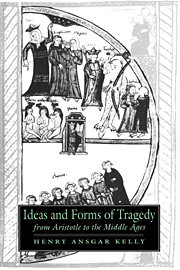5 - The high Middle Ages: discoveries and oblivions
Published online by Cambridge University Press: 22 September 2009
Summary
The thirteenth century has been termed the greatest of centuries by an admirer of the philosophical and theological achievements of the period, but it was a low point on some literary fronts. At the beginning of the century, there was the last flowering of the Arthurian movement, in French prose and German verse, but apart from these works – and splendid lyric poetry – very little influential vernacular literature was written at this time, except for the two parts of the Roman de la Rose. Moreover, many of the scholarly gains of the twelfth century and earlier were lost, and France and England were, in general, slower than Italy to set out on the road to recovery and discovery.
The tragedies of Seneca were discovered and studied in Italy at the end of the thirteenth century, and though an English scholar in the second decade of the fourteenth century wrote a commentary on the plays at the request of an Italian cardinal in Avignon, it is only in Italy that we see the commentary being used and find Senecan influence upon ideas of tragedy or hear discussions of the dramatic nature of ancient tragedy. A parallel discovery of Seneca's tragedies a century earlier in northern France seems to have resulted only in the preparation of a large-scale florilegium of notable sentiments.
- Type
- Chapter
- Information
- Ideas and Forms of Tragedy from Aristotle to the Middle Ages , pp. 111 - 168Publisher: Cambridge University PressPrint publication year: 1993



